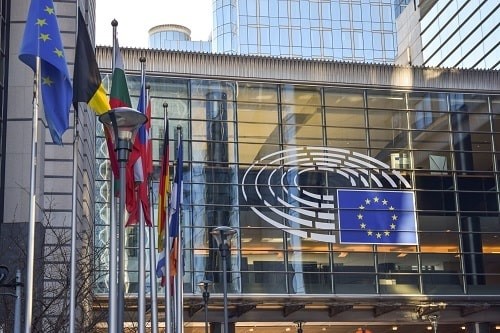With the date for the withdrawal of the United Kingdom from the EU looming, future relations remain to be agreed; but as matters currently stand, what can we say about the likely effect of departure on health and safety law in the UK?
Opinion
Preserving the values of a robust system
Much has been written about the long tradition of health and safety regulation in the UK, with many of its cornerstones established entirely independently of the EU, including the foundation of the current system, the Health and Safety at Work Act 1974 (HSWA) and, more recently, the Corporate Manslaughter and Corporate Homicide Act 2007. The UK’s system has stood the test of time and has resulted in it having one of the best combined health and safety records globally.
Since joining the EU, a series of individual directives focusing on specific aspects of safety and health at work have been issued at European level and transposed into UK law. As with other legislation emanating from the UK Parliament, they will remain unaffected after withdrawal until repealed or otherwise amended in the UK. Insofar as laws derive from directly applicable EU Regulations, the UK government’s European Union (Withdrawal) Act 2018 (EUWA), (which will come into force immediately on Brexit), provides some legal certainty immediately following departure by converting EU law as it stands at that moment into domestic law, as well as preserving laws made in the UK to implement EU obligations.

EUWA also creates temporary powers to enable corrections to be made to laws which would otherwise no longer operate appropriately after withdrawal (perhaps because, for example, they refer to EU institutions or regulators), so that the domestic legal system can continue to function properly outside the EU. One such regulation is the Health and Safety (Amendment) (EU Exit) Regulations 2018 which aims to “ensure that existing protections and regulatory frameworks are maintained and continue to work in the same way once the UK has left the EU”. The regulations “maintain the protections afforded by health and safety legislation and do not impose any new liabilities or obligations on relevant persons”. Eleven sets of regulations and one directly acting EU Regulation are affected, including the Offshore Installations (Offshore Safety Directive) (Safety Case etc.) Regulations 2015 and the Control of Major Accident Hazards Regulations 2015, where obligations to other member states and EU institutions are replaced, in essence, with international obligations to share information.
Throughout, the UK government has said it is committed to protecting workers’ rights; in its White Paper The United Kingdom’s exit from, and new partnership with, the European Union, the UK government set out its guiding priorities as it approached negotiations to exit the EU, including the commitment to protect workers’ rights. Then, in autumn 2018, the UK government published a series of papers offering guidance on certain issues, including workplace rights, should the UK leave the EU with no deal. In “Workplace rights if there’s no Brexit deal” the UK government stressed that it “firmly believes in the importance of strong labour protections”. Some (including the Trades Union Congress), however, remain unconvinced, citing a lack of detail and indeed comments by ministers which seem to suggest a contrary approach.

Laura Cameron: "Regulations and rights protecting our workers are entrenched in our society’s moral thinking".
As the UK seeks new markets and investments, could there be a temptation to water down workers’ rights? Perhaps, but probably not. Much will depend on future relations with the EU but that aside, in the short to medium term at least there is unlikely to be much, if any, change. Looking beyond that, the political reality must surely be that many of the regulations and rights protecting our workers are so entrenched in our society’s moral thinking and aspirations that to play fast and loose with them for the sake of trade would be foolhardy at least.
Over time, there will undoubtedly be some divergence, but that does not necessarily mean that UK workers will be worse off than their EU neighbours; the political will to rid the statute book of ‘unnecessary’ regulation is as alive in the EU as in the UK, but the EU lacks the historical traditions in this field of the UK, which has long been viewed as the ‘gold standard’ in health and safety matters, with UK workers and their representatives expecting certain standards and more importantly that these standards will be maintained and indeed improved.
Witness too recent campaigns by regulator, the Health and Safety Executive (HSE), aimed at further improving workers’ lives so that all
can “Go home healthy”. This is a domestic initiative, unlikely to be affected by Brexit.
Despite all this nothing can be guaranteed, and as organisations are increasingly being advised to make plans for a potential no-deal Brexit, there is always the risk that funds (and time) earmarked for improving workplace safety and health are instead being diverted to making contingency plans.
The corollary, of course, is that with central budgets taken up with Brexit, little is left to boost the coffers of already stretched regulators such as the HSE. The perennial issue of funding shows no signs of abating and indeed may get worse as the HSE takes on more in place of former EU institutions (for example in relation to chemical regulation). Improvement depends not only on employer/worker commitment but also on efficient and effective enforcement.
That said, businesses appreciate the value of a robust health and safety management system. Not only does it make sense from a reputational perspective, but it also makes sense economically – hefty fines for breaches of the HSWA look set to continue and production days lost through ill health are difficult to recover.
OPINION

The air we breathe is all our business
By Nicky O’Malley, director of corporate partnerships, Global Action Plan on 01 June 2023
Businesses have a vital role to play in improving air quality – and the UK’s Clean Air Day on 15 June is a great opportunity for companies to begin or renew their efforts in this area.

All jobs greener: why we need workforce transformation for a sustainable future
By Martin Baxter, deputy CEO, IEMA (Institute of Environmental Management & Assessment) on 01 June 2022
The shift to a green economy will create green jobs within new and emerging sectors, while those working in existing sectors will have to gain the requisite green skills to take advantage of the business value-creation opportunities that come from embedding sustainability across the whole organisation.

Preventing chemical pollution: how the UK is falling behind Europe
By Ruth Jones MP for Newport West & Shadow Minister for Agri-Innovation and Climate Adaptation on 01 June 2023


